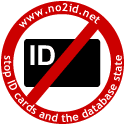After a story that you can’t buy an iPad with cash in Apple shops, I looked up the rules as I thought that cash in reasonable denominations had to be accepted. It seems that I was wrong.
The Legal Tender rules (in the UK) apply only to the payment of debts and even then there are rules.
- Strictly it only applies to debts paid into court.
- No change can be demanded so the exact sum (or over) is required.
- Bronze coins are only valid up to a total of 20p.
- 5p and 10p coins are only valid up to a total of £5.
- 20p, 50p (and 25p) coins are only valid up to a total of £10.
- £1, £2 (and £5) coins are valid to any sum.
- In England and Wales, Bank of England notes are valid to any sum. The notes of Scotland and Northern Ireland are not.
- In Scotland and Northern Ireland, Bank of England notes are not legal tender, but neither are their respective own currency notes because they are issued by private banks and are therefore only promissory.
In practice there is agreement by UK banks to accept all the national notes, but shops do not have to. Bank of England notes are generally accepted across the UK and also in the Channel Islands, Isle of Man and Overseas Territories.
So, you can’t insist on paying for anything in cash and the transaction is by mutual agreement. However you can clear a debt using cash so long as the rules are adhered to—technically , unless by prior agreement, even a restaurant bill is a debt so can be settled in this way, but be prepared to carry a large bucket of coins if you are in Scotland.






 Webmaster
Webmaster